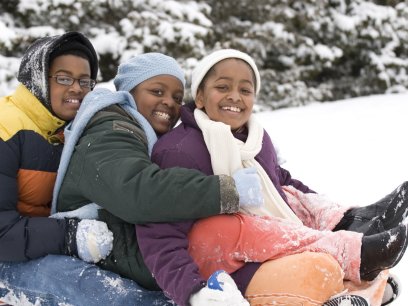
Giving back doesn’t have to wait for a specific season or date. While initiatives like Giving Tuesday serve as a reminder of the power of generosity, that spirit isn’t confined to a single day. Whether you're volunteering at a local park, organizing a beach clean-up, or donating to a cause you believe in, every action counts. No matter the time of year, your time, talent, and support can help create stronger, healthier communities and make a lasting difference.
But can giving back to people and causes you’re passionate about also provide benefits to your mental and physical health?
Over the years, a growing body of research demonstrates positive associations between doing good and feeling well. In fact, scores of studies have shown a connection between volunteering and mental, physical, and social benefits. Here are just a few:
- Research published in The Gerontologist showed some participants in a 20-year study reported having fewer depressive symptoms after volunteering. The study analyzed both the mental and physical health of volunteers helping with environmental stewardship.
- A report from the Corporation for National and Community Service highlights how volunteering supports healthier aging. Older adults who volunteer tend to report lower rates of depression, fewer physical limitations, and higher overall well-being. CNCS studies also note that senior volunteers experience lower mortality rates compared to non-volunteers. These findings reinforce that service not only strengthens communities—it also contributes to a healthier, more active life for those who give their time.
- Research published in Health Psychology showed that older adults who volunteered (especially those who did so on a regular basis) “were at lower risk for mortality four years later.”
- A study from the University of the South demonstrated that participating in “random acts of kindness” can elevate your mood moreso than if you had done something that focuses on benefiting yourself.
- The International Journal of Psychophysiology published research found that those who “gave social support to others” typically had lower blood pressure.
- Research published in BMC Public Health showed that “volunteering should be promoted by public health, education and policy practitioners as a kind of healthy lifestyle, especially for the social subgroups of elders, ethnic minorities, those with little education, single people, and unemployed people, who generally have poorer health and less participation in volunteering.”
As you think about giving back, know that when you do good, you’re not only helping others, you’re helping yourself. Consider supporting NEEF, whose work helps communities connect with nature and build a healthier, more sustainable future for all.
Originally published: November 2019 • Updated


